Summer is here and along with it comes celebrations which frequently include fireworks. Most of us enjoy, and even look forward to, fireworks with the ‘oohs’ and ‘aahs’ that go along with it. But for your dog it may be a different story. Is your dog scared of fireworks? If so, you are far from alone. According to Stanley Coren, PhD., DSc, FRSC, “approximately half of all dogs have fearful reactions to loud noises, at least to some degree”. The truth is… for some dogs fireworks and other loud noises aren’t a big deal, but for others you will find a range of behaviors like shaking, hiding, barking, whining and potentially try to escape your home or yard. We are sharing tips and techniques that can help you… and your dog… better manage fears based around fireworks (or other loud noises).
Fight or Flight
A dog’s hearing is far superior to ours – actually about four times better! They also hear a wider range of frequencies than we do. With that kind of hearing, those loud cracks and booms of the fireworks that we all watch in awe, are far more intense for your dog than for you. A dog hears these loud fireworks and doesn’t know what they are. They don’t know they aren’t a threat. So, as you sit in the yard or park, you know the fireworks are not a threat but your dog doesn’t. They also have no idea when those loud noises are going to happen again! Is it really that surprising that fireworks push some dogs (and other animals for that matter) into fight or flight mode?
Along with your dog hearing the fireworks, they will also smell them far more intensely than you and I. It’s estimated that dogs have the ability to smell anywhere from 1,000 to 10,000 times better than us. So when they are hearing… much better than us, and smelling… much better than us… and they also see better than us in the dark… imagine this experience from your dog’s standpoint. Put yourself in their shoes… or paws… and hopefully you will be able to see that these fireworks, that you find enjoyable, can cause you dog extreme sensory overload leading to overwhelming stress and anxiety.
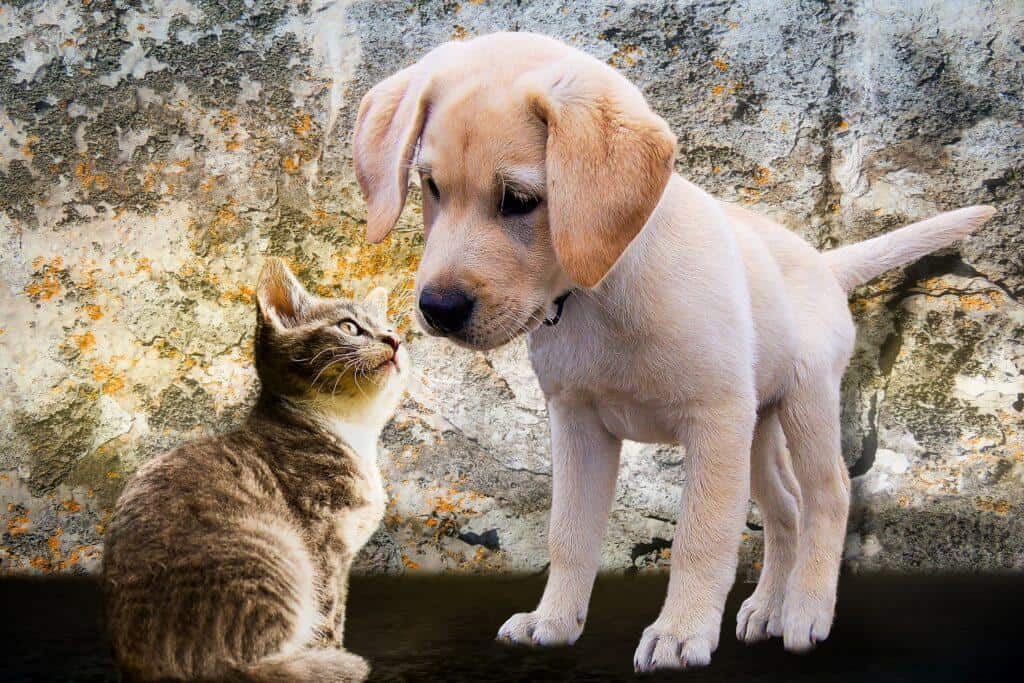
RECOMMENDED ARTICLE: TIPS ON HOW TO SOCIALIZE YOUR PUPPY
Socialization
In a dog’s life, specifically as a young puppy, there is a time where they are best able learn about their world… and what is safe and what is not. If, during this time, your puppy is not exposed to stimuli (people, places, things, textures, sounds, etc) there is a much greater risk that upon exposure to that stimuli later in life, your dog could react with fear and apprehension. This opportunity for exposure – which is referred to as puppy socialization – is up until about 16 weeks of age. Once a puppy hits about 16 weeks of age, that puppy socialization period has pretty much ended. If you have a puppy older than that it doesn’t mean that you are doomed to have a dog that fears everything, but the process for dealing with things that may cause fear is a little different…. and more time consuming… without guaranteed results. I invite you to learn more about puppy socialization so that you’re able to give your puppy the best opportunity to grow into a well adjusted companion for you and your family.
While it’s not very realistic to eliminate fireworks in your area you can certainly take steps to help keep your dog calm and safe during fireworks. Here are some techniques and ideas you can try:
MANAGEMENT
In dog training a critical tool is management. Managing your dog’s environment can help to end or reduce unwanted behaviors. In this case, managing your dog’s environment can help to minimize the intensity of the fireworks for your dog. There are lots of ideas you can try with this…. here are a few:
- Hang out with your dog in the basement if you have one. This is an area where the sound may not be as intense… and while you are there you can also add some of the other ideas that are listed below:
- Turn on the television… perhaps a little louder than you may usually have it. In addition your could try something like Dog TV to give you dog something else to focus on that they may enjoy. And yes, Dog TV is a real thing!
- Turn on some music. Even better, consider playing music that may be calming for your dog. There are differing opinions on this, and your dog may vary, but generally Classical music is good at initially relaxing your dog, but Reggae and Soft Rock seem to be the genres of choice when it comes to calming dogs down in stressful environments.
- Keep your doors and windows closed. This is for safety reasons – in case your dog is panicky enough and tries to escape – but it also helps to muffle the sound of the fireworks. To reduce the visual aspect of fireworks close both blinds and curtains. This will help to reduce the flashing lights which your dog may actually learn to associate as a predictor of ‘scary things’.
- White noise machines may help to mask the sounds of the fireworks.
- If you have a dog that is fearful it is safest to keep them indoors during fireworks. As well, make sure your dog has proper identification with information that is up to date… just in case.
MEDICATIONS
Prescription medications are available to help reduce anxiety and fear in dogs, but it’s absolutely critical that you discuss this directly with your veterinarian before trying with your dog. Non-prescription options also exist such as herbal products, homeopathic blends, essential oils and pheromones. Personally, for anxiety with my dogs, I have tried both Rescue Remedy and CBD oil with some success as I didn’t want to have to go the prescription route.
COMPRESSION
There are products that work on the theory that applying pressure to your dog’s body causes a calming affect, much like swaddling a baby or giving someone else a hug. To accomplish this affect you can purchase a product like the ThunderShirt or use a blanket as a wrap… even a snug fitting shirt that you have purchased or made yourself.
SAFE AREA
Make sure that your dog has access to a safe area that they are familiar with . This is where crates can really help as most dogs, who are crate trained properly, actually enjoy their crate. It’s their space, just like your bedroom is yours. It’s a safe and comfortable area. It’s even better when they have their favorite toys and bedding in it. If you aren’t a crate person… and haven’t trained your dog previously with a crate, this would not be time to do that. Crate training should not be done by simply forcing your dog to go inside and close the door… this would not be considered proper crate training and would likely backfire… behaviorally. If you don’t use a crate, have a spot that is safe, perhaps by your bed, where your dog can access their favorite toys that will provide them with comfort.
REMAIN CALM
If you happen to be in the puppy stage and this is your puppy’s first experience with fireworks it is the perfect time to take advantage of the opportunity to teach your puppy that the fireworks are nothing to be afraid of. Keep them busy… train some tricks… play some games… don’t fawn all over them every time the fireworks go off. Keep it ALL positive! By making it a positive experience for them, the next time they hear fireworks they will likely be happy because it means they get to play with their human or get yummy treats!
DISTRACTION
If your dog is not too stressed already try to just keep your dog busy. If they will, play some games, tug of war, find the ‘toy’, give them an enrichment toy such as a stuffed kong or a snuffle mat… something that will hold their attention for more than a minute or two. Often if a dog is already stressed they are not going to be interested in playing or eating… so if that’s the case for you, you will need to try something else.
Desensitization & COUNTERCONDITIONING (DS/CC)
This is basically the process of training your dog not to be afraid. One way that you can do this for something like fireworks is to use recordings of the noises. Without getting too technical, initially play these noises/sounds at low volumes when your dog is relaxed and happy. Now, while the noises are playing, ensure that you are providing yummy treats for your dog… or playing a fun game of tug… or something else that they love! Then, after a while, if your dog seems relaxed still, you can try to turn the volume up, but just a little bit. If at some point you notice that your dog is getting stressed or bothered by the noise, reduce the volume as the increase have been too much too soon. Any volume increases should be VERY gradual while watching your dog for signs of stress. You’re essentially teaching your dog that the noises are nothing to worry about… and in essence they are a good thing because it means they get treats or get to do something fun like playing with their human!
This is potentially a long-term project. If your dog is particularly sensitive don’t feel you need to turn the volume up with every session. Remember the saying… slow and steady wins the race!
With sharing the above techniques I feel I should also share the results of a recent study done by Stefanie Riemer, a member of the University of Bern’s Companion Animal Behavior Group in Switzerland, who studied 1,225 dog owners with the intent of finding what actually helps to reduce anxiety and fearfulness for dogs. Here are the findings of that study:
Compression, such as the ThunderShirt, was considered effective by 44% of owners that used them. Noise desensitization CD’s were considered effective in 55% of the cases. Prescription medications were much more effective at reducing fear and anxiety in dogs at 69% of the time, but homeopathic, non-prescription alternatives were found to be no more effective than placebos. Finally, and by far the most effective in dealing with fear and anxiety, is counter-conditioning, which was considered effective in more than 70% of the cases.
PREVENTION IS BEST
One thing is very clear… it is better to prevent the fear of fireworks (or other loud noises) than have to deal with them after they have developed. Remember I mentioned puppy socialization? This is why it’s such a critically important stage in your dog’s development. A puppy that is not exposed to stimuli (people, places, things, objects, sounds, etc) in their environment can potentially develop fear and anxiety around those stimuli later on as an adult dog.
In the end, dogs are sentient beings. They have emotions just like we do. As dog guardians we not only need to ensure that their physical needs are taken care of, but also their emotional needs. This is how we keep our dogs happy and healthy… and we have the responsibility to provide them with a fulfilled life the best we can… and in return they provide many benefits to us as we both live our lives together.

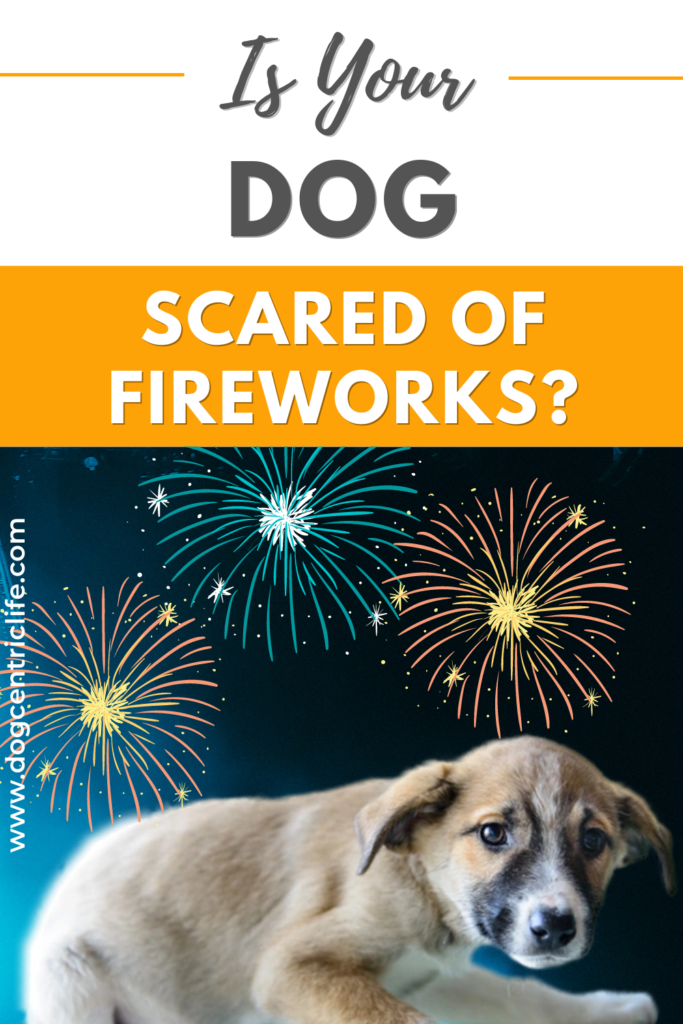
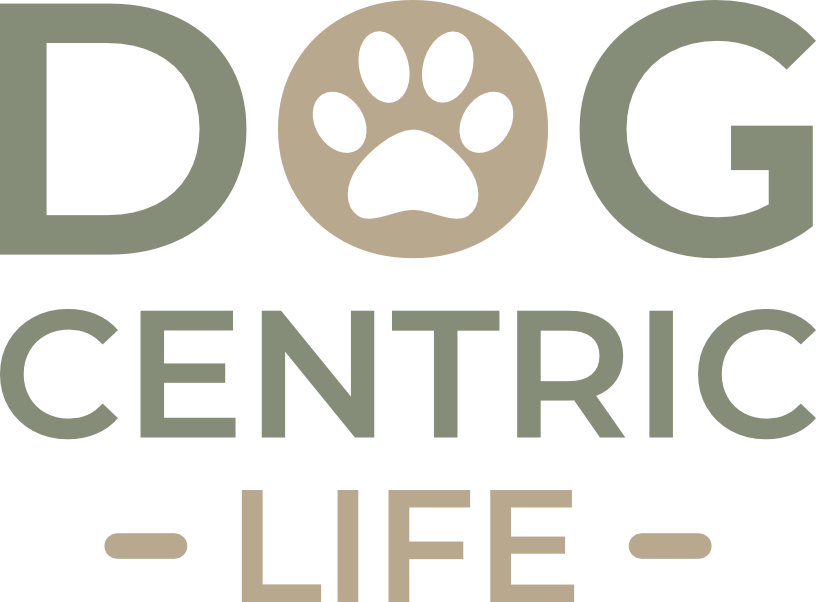


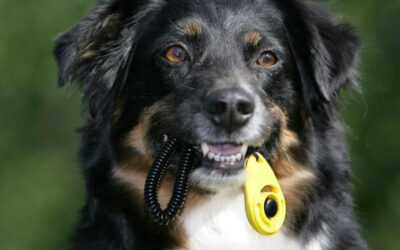
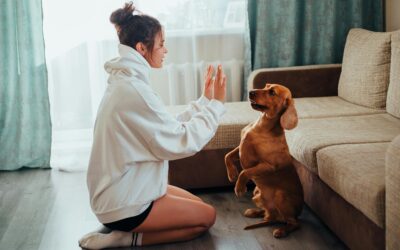
0 Comments